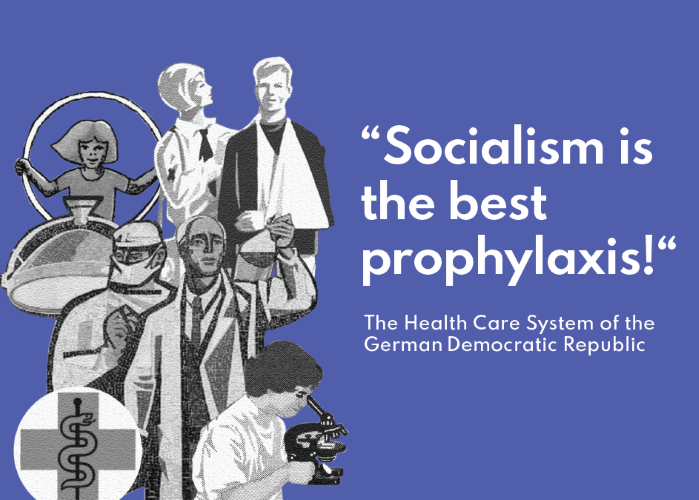
The unprecedented hyperinflation in Pakistan has had a profound impact on the public health sectors and overall socioeconomic conditions
By Sohail Ahmed
During the 1970s drastic cost increases in oil prices by the Organization of Petroleum Exporting Countries (OPEC) led to market turmoil throughout the globe especially in the so-called third world countries. As a result, raw material exporting countries had been weakened, and rich countries’ markets had turmoil whereas the loan interest rate had increased. These dramatic changes in the global market stimulated international financial institutions to adopt the Monetarists free-market approach by Milton Friedman and moved away from Keynesian principles of government intervention.
The implications of the aforementioned fluctuations persuaded the International Monetary Fund and World Bank to introduce Structural Adjustment Programs (SAPs) in the 1980s to redevelop countries. Most of the nations are members of the International Monetary Fund but Western countries/ former colonizers have greater influence on voting. This neocolonial SAPs’ tendency demonstrates direct agreement between international financial institutions with countries’ finance ministries that compel the host counties to increase privatization, economic deregulation, increase taxes on public consumption goods, and decrease subsidies over public sectors. The macroeconomic conditionality of structural adjustment programs has changed market fundamentalism and altered the dynamics of socioeconomic conditions of countries, other than that health conditions. The decline of Primary Health Care has roots in the structural adjustment programs.
 Garman Democratic Republic, which only existed from 1949 to 1990, had a socialist style of health care policy
Garman Democratic Republic, which only existed from 1949 to 1990, had a socialist style of health care policy
In 1978, delegates from 134 countries including the United States had gathered in the Alma Ata city of Kazakhstan (Former part of USSR), to promote the Primary Health Care system around the globe. This multispectral strategy aimed to ensure fundamental health care facilities through packages for all populations, that’s why the rhetoric phrase “Health For All”. Vaccination, maternal-child health services, family planning, endemic and epidemic disease control, and first aid have all been included in this package.
Furthermore, it focused on actively engaging government in the medical practices and ensuring the participation of the community in public health education. Subsequently, it was harder to sustain this project for a longer period due to market-oriented macroeconomic conditionalities by Structural adjustment programs. As a result, two schools of thought emerged: one comprehensive, which wanted to address all health concerns in the package of Primary Health Care and was run by the government, and the other selective, which wanted to compromise multisectoral primary health care and embed only some aspects of health care services except all dimensions due to SAPs conditionalities to increase taxes on public health services.
Eventually, in 1987, the situation worsened for Primary Health Care and Word Bank denounced health services as a more private matter, compelled people to charge money for health services, and introduced non-government actors to provide health services along with private insurance companies. Similarly, East Germany’s former socialist estate, known as the Garman Democratic Republic (GDR), which only existed from 1949 to 1990, had a socialist style of health care policy.
Historical research demonstrated how primary health care was separated from the public realm and deemed a private affair by global institutions

Also read: Neocolonialism and the IMF
The DDR’s tagline was “Socialism Is the Best Prophylaxis,” which was coined by physician and politician Maxim Zetkin (1883-1965). This slogan emphasized that the GDR was more interested in preventive health care than in therapeutic care. This anti-capitalist state had assured that healthcare facilities were under government surveillance, that there were no profit-driven healthcare services, and that human capital was invested in.
Furthermore, the formation of GDR’s healthcare system insists to make sure universal health and comprehensive health rather than the selective model of health for all citizens as a fundamental right. Outpatient and inpatient medical treatment were both provided by the government. They recruited community nurses who had received medical therapy, and remarkably, there was only one doctor for a population of ten people. Over time, most skilled doctors migrated to America and West Germany because they paid more than East Germany and had a greater impact on the whole health care system. Finally, after Germany’s reintegration in 1990, the East German economic structure was dissolved and public health policies were modified. Due to the newly German government’s severe application of austerity measures, social welfare programs have been decreased, as has the concept that Socialism is the Best Prophylaxis.
 The data indicated approximately 40 pharmaceutical companies in Pakistan are unable to sustain the supply of medicine
The data indicated approximately 40 pharmaceutical companies in Pakistan are unable to sustain the supply of medicine
This historical research demonstrated how primary health care was separated from the public realm and deemed a private affair by global institutions. Similarly, the engagement of non-governmental players has depoliticized the topic of health care, which is why many no longer consider it a concern. The unprecedented hyperinflation in Pakistan has had a profound impact on the public health sectors and overall socioeconomic conditions. The hike in the energy prices like petrol, diesel, and electricity causes dozens of industries’ unsustainability. The data indicated approximately 40 pharmaceutical companies in Pakistan are unable to sustain the supply of medicine. The pharmaceutical companies issued that the reasons behind the increased cost of medicines are the devaluation of money and excessive taxes on imported medicine ingredients.
______________
 Sohail Ahmed is M.Phil. Student at the Department of Anthropology, Quaid-e-Azam University Islamabad. He is working in the medical anthropology research domain paying attention to the perspectives of bioethics, medical ethics, and the issue of overuse and misuse of antibiotics and the ethical dilemmas of medical practice in Sindh, Pakistan.
Sohail Ahmed is M.Phil. Student at the Department of Anthropology, Quaid-e-Azam University Islamabad. He is working in the medical anthropology research domain paying attention to the perspectives of bioethics, medical ethics, and the issue of overuse and misuse of antibiotics and the ethical dilemmas of medical practice in Sindh, Pakistan.